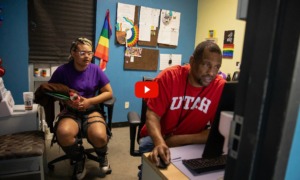When youths contact Workforce Development, Inc., in Rochester, Minn., to ask about their chances of landing a summer job, youth workers state up front that the only thing the agency can guarantee them is a seat in one of its job readiness classes.
“We tell them the best thing they can do is to come to our workshops and get skilled up and ready to go into some of those jobs,” said Marge Kuethe, the youth programs coordinator.
Carlos Dominguez, 16, of Willmar, Minn., has never had a formal job; he just has experience farming in the fields with his uncle. “That’s why I’m here,” Dominguez said of his decision to go to Workforce Development. “This is like a start.”
Even though he and his peers have searched for work to no avail, Dominguez said he remains optimistic. “It’s about getting out there. It’s about effort,” he said. “What you put in is what you get out.”
Another student at Workforce Development, Kalia Cloud, 16, said the job readiness classes have dealt with, among other things, controlling anger on the job and “not freaking out over pressure.”
Those lessons may prove just as vital for Cloud when she’s unemployed as they will whenever she finds a job. Money is tight. Her parents are both high school dropouts and do not live together. Her mother is unemployed and pregnant.
Horace Bryant, special projects counselor at Workforce Development, who works with youth ages 16 to 21, says young people like Cloud and Dominguez are trying to make themselves more appealing to employers. “They’re quite aware that the job market is tight and jobs that were specific to young adults are being taken over by more mature and older workers because of the economy,” Bryant said.




























